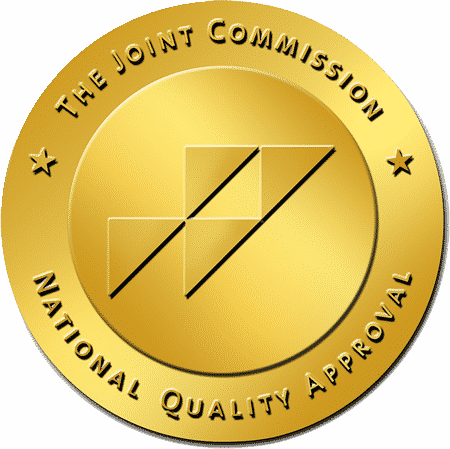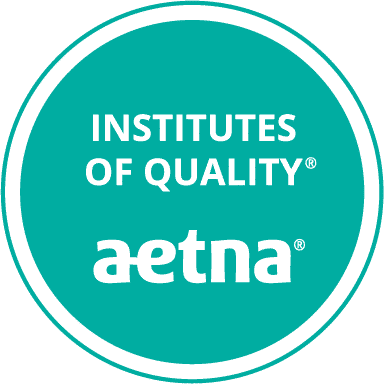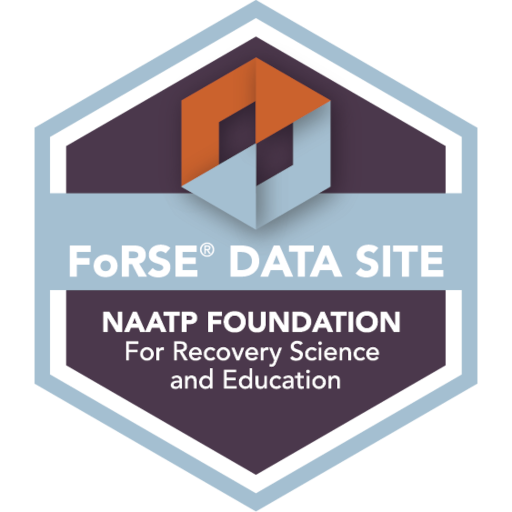When addiction takes hold of your life or the life of someone you love, finding the right drug and alcohol addiction treatment center can feel overwhelming. With hundreds of treatment facilities across the state, knowing where to turn for effective, compassionate care is important for beginning the recovery journey.
Established and Trusted Drug and Alcohol Addiction Treatment
La Hacienda Treatment Center stands as one of the most established and trusted alcohol and drug addiction treatment facilities in Texas, with continuous operation since 1972. This longevity represents more than five decades of helping individuals overcome drug and alcohol addiction. What sets La Hacienda apart is their treatment team and commitment to comprehensive medical care—they are one of the few inpatient addiction treatment centers with doctors on staff seven days a week, ensuring extensive medical oversight that many facilities cannot provide. Their large alumni network showcases the breadth of individuals they have helped achieve lasting recovery, while their in-network insurance options make quality addiction treatment accessible to more families. La Hacienda has earned a strong reputation in professional circles for clinical excellence and evidence-based care.
This comprehensive guide will walk you through everything you need to know about drug and alcohol rehab centers in Texas, from understanding different types of addiction treatment programs to navigating insurance coverage and taking the first steps toward recovery. Whether you’re seeking help for yourself or a loved one, understanding your options is the first step toward reclaiming a life free from substance abuse.
Overview of Drug and Alcohol Rehab Centers in Texas
Texas is home to over 500 addiction treatment facilities offering comprehensive drug and alcohol rehabilitation services across the state. These facilities provide a wide range of treatment options for individuals struggling with substance use disorders, from medical detoxification to long-term residential care and ongoing outpatient support.
The major treatment hubs are located near the Dallas, Houston, San Antonio, Austin, and Fort Worth metropolitan areas, though quality drug and alcohol addiction facilities can be found throughout the state. Substance abuse treatment centers in Texas are largely found near major metropolitan areas. This geographic distribution ensures that individuals seeking help can often find reputable care within a reasonable distance from home, which can be particularly important for family involvement in the treatment process. For some with mental health disorders and substance use disorder, it may be best to go to treatment away from a nearby city.
Texas ranks 18th nationwide for addiction treatment affordability, with diverse payment options and broad insurance acceptance making treatment more accessible than in many other states. This affordability factor, combined with the state’s robust network of treatment providers, creates opportunities for individuals from various economic backgrounds to access the care they need.
All legitimate drug rehab centers in Texas are licensed by the Texas Department of State Health Services, ensuring adherence to state and federal standards for evidence-based treatment. These state-licensed facilities must meet rigorous requirements for staff qualifications, treatment protocols, and safety standards. More than 70% of Texas rehab centers provide counseling for trauma, recognizing the critical role of addressing past experiences in the recovery process. Most centers provide crisis care with evidence-based treatment for both substance use disorders and co-occurring mental health conditions, recognizing that effective addiction treatment often requires addressing underlying mental health issues simultaneously.
Treatment centers throughout Texas serve adult men and women aged 18 and older, with many facilities offering specialized programs for different populations and addiction types. These specialized tracks might focus on specific substances like opioids or alcohol, or cater to particular demographics such as veterans, young adults, or professionals who need to maintain certain levels of confidentiality during treatment.
Types of Drug Rehab Programs Available in Texas

Texas treatment centers provide a comprehensive continuum of care designed to meet individuals at whatever stage of addiction or recovery they may be experiencing. This continuum typically includes medical detoxification, inpatient addiction treatment, various outpatient addiction treatment options, and extensive aftercare services. Only a select few facilities, like La Hacienda Treatment Center, offer every level of care under one organizational umbrella, providing seamless transitions between treatment phases.
Program duration and intensity levels vary significantly based on individual needs and the severity of the addiction. Residential stays commonly range from 30 to 90 days or longer, while outpatient programs may be time-limited intensive interventions or ongoing maintenance support that continues for months or even years.
Many texas rehab centers offer specialized tracks for different substances and populations. These might include specific programming for alcohol addiction, opioid dependency, stimulant abuse, or poly-substance use. Population-specific programs often cater to veterans, healthcare professionals, or individuals with co-occurring mental health disorders.
Specialty Professionals Served
La Hacienda’s recovering professionals program works with medical professionals that misuse drugs as well as being one of the few treatment teams that have been trained in the Federal Aviation Administration’s Human Intervention Motivation Study (HIMS) program to work with and accept professional pilots . The Recovering Professionals Program at La Hacienda is designed for those whose profession requires licensure or certification: physicians, dentists, attorneys, nurses, accountants, etc.
Therapeutic Approaches
Most therapeutic approaches used across Texas centers are grounded in evidence-based modalities. Cognitive Behavioral Therapy (CBT), Dialectical Behavior Therapy (DBT), and motivational interviewing form the foundation of most treatment programs. Many facilities also integrate experiential therapies, such as adventure-based activities or creative arts therapies, to enhance traditional therapeutic approaches and support comprehensive healing.
Patients are able to utilize the Ropes Course on the La Hacienda property. Human services like team building and trust can be found in these activities.
Medical Detoxification Services
Medical detox represents the initial first step in addiction treatment, providing 24/7 medically supervised withdrawal management for safe detox from drugs and alcohol. This level of care is essential for individuals who have developed physical dependence from their alcohol and drug addiction, particularly those using alcohol, opioids, benzodiazepines, or other substances that can produce dangerous withdrawal symptoms.
During medical detox, healthcare professionals monitor vital signs, manage withdrawal symptoms, and ensure patient safety throughout the process. The medical supervision is particularly crucial because withdrawal from certain substances can be life-threatening without proper medical intervention. Detox services typically last anywhere from several days to two weeks, depending on the substance involved and the individual’s medical history.
Medication Assisted Treatment
Medication assisted treatment (MAT) plays a role in detox services, particularly for opioid, alcohol, and other substance dependencies. FDA-approved medications such as buprenorphine, methadone, and naltrexone are used to manage cravings, reduce withdrawal symptoms, and prevent relapse. Medications, when used as part of a comprehensive treatment plan, significantly improve outcomes for individuals with opioid addiction and alcohol addiction.
La Hacienda utilizes MAT during detoxification from substances such as MDMA. However, if a patient is seeking long term MAT, they will be referred out to one of the Texas rehab centers that can provide these ongoing doctors appointments and follow-up.
Leaving Detox
Medical detox is designed to integrate seamlessly with inpatient or outpatient programs for a smooth transition to ongoing treatment. The goal is never simply to help someone through withdrawal, but to prepare them for the therapeutic work that will support long-term recovery. Most reputable facilities begin discharge planning and ongoing treatment recommendations from the moment someone enters detox services.
Inpatient and Residential Treatment Programs
Residential treatment programs provide the most intensive level of care, offering 24/7 clinical supervision and support in highly structured, therapeutic environments. These programs are ideal for individuals with severe addictions, those who have been unsuccessful in outpatient treatment, or people who need to remove themselves completely from environments that trigger substance use.
Drug and alcohol rehab residential programs typically range from 30 to 90 days or longer, with research consistently showing that longer engagement increases positive outcomes for long term recovery. The duration of stay is determined by individual progress, the severity of the addiction, and the presence of any co occurring mental health disorders that may complicate treatment.
La Hacienda Treatment Center operates residential programs on a private ranch campus, providing a serene, therapeutic environment removed from the stresses and triggers of daily life. This type of setting allows individuals to focus entirely on their recovery without the distractions and temptations that might exist in their home environment.
Clinical Offerings in Residential Treatment
The clinical offerings in residential treatment typically include weekly individual therapy sessions, multiple group therapy sessions per day, family therapy components, and specialized trauma-informed care. Evidence-based therapies like CBT and DBT form the foundation of treatment, but facilities like La Hacienda may augment traditional care with experiential and adventure-based therapeutic activities. These might include ropes courses, equine therapy, or other outdoor activities that build confidence, teach coping skills, and support holistic recovery.
Residential treatment also provides structure and routine that many individuals in early recovery desperately need. Days are carefully planned with therapeutic activities, meals, exercise, and rest periods that help individuals develop healthy habits and life skills that will serve them well after discharge.
Outpatient Drug Rehab Options
Outpatient treatment allows individuals to receive structured addiction treatment while continuing to live at home, maintain employment, or manage family responsibilities. This flexibility makes outpatient care an attractive option for many people, particularly those with strong support systems at home or those stepping down from residential treatment.
Intensive Outpatient Programs (IOPs) and Partial Hospitalization Programs (PHPs) represent the most intensive forms of outpatient care. IOPs typically require 9-12 hours of treatment per week, usually scheduled in the evenings to accommodate work schedules. PHPs are more intensive, requiring 20-30 hours per week and often scheduled during daytime hours. Both programs include group therapy, individual counseling, and educational components about addiction and recovery.
Standard outpatient therapy offers ongoing support for individuals in stable recovery who need continued professional guidance. These sessions might occur weekly or bi-weekly and can continue for months or years as needed. This level of care is often used as step-down support as clients progress in their recovery journey.
Recent trends in outpatient treatment include widespread adoption of telehealth options, allowing clients to access both individual and group therapy sessions online. This innovation has dramatically increased accessibility, particularly for individuals in rural areas of Texas or those who lack reliable transportation. Telehealth has proven especially valuable for maintaining continuity of care during challenging circumstances.
Evening and weekend program options have become increasingly common to accommodate varied work schedules and family obligations. This flexibility reflects a shift toward patient-centric, flexible care delivery that recognizes the diverse needs of people seeking addiction treatment.
Insurance Coverage and Cost of Drug Rehab in Texas
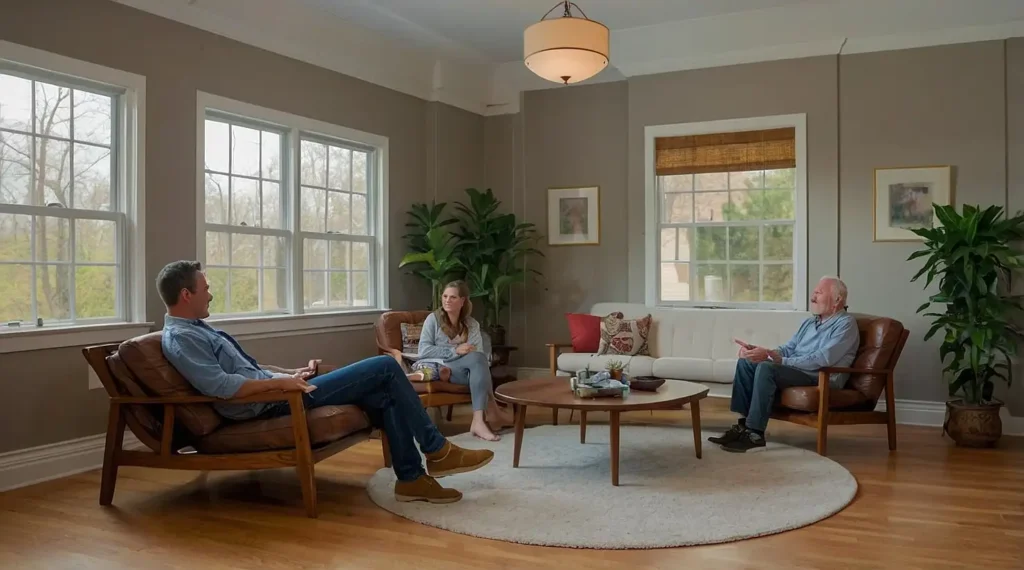
Understanding insurance coverage and treatment costs is often one of the biggest concerns for individuals and families considering addiction treatment. Fortunately, Texas drug rehab centers like La Hacienda, accept a broad range of insurance products, and various financial assistance options exist to help make treatment accessible.
Major Insurance Providers Accepted
Most reputable treatment centers in Texas work with major private insurance providers including Blue Cross Blue Shield, Aetna, Humana, and Magellan. Under the Affordable Care Act, these private health insurance plans are required to treat addiction as a mental health condition with parity coverage, meaning addiction treatment benefits must be equivalent to those provided for other medical conditions.
For military personnel and veterans, TRICARE insurance provides coverage for substance abuse treatment at many facilities throughout Texas, though it’s important to verify coverage specifics with individual treatment centers. Similarly, VA benefits are available at select facilities for eligible veterans seeking addiction treatment. Although La Hacienda does not accept TRICARE insurance, they often can guide a patient to several options to meet their needs.
Texas Medicaid STAR program
Texas Medicaid STAR program provides coverage for detox services, medication assisted treatment, inpatient care, and outpatient treatment services for Texas residents who qualify and lack private insurance. Medicaid coverage can be particularly valuable for individuals who have lost employment or insurance due to their addiction, ensuring that financial barriers don’t prevent access to life-saving treatment.
Medicare and Medicare Advantage
Medicare and Medicare Advantage plans do cover substance abuse treatment services, though coverage specifics and limitations vary by provider and specific service lines. It’s important to verify coverage details with both the insurance provider and the treatment facility before beginning treatment to understand any potential out-of-pocket costs.
Access Help for Substance Use Through OSAR Programs
Outreach, Screening, Assessment, and Referral (OSAR) services are available to anyone in need of information or guidance regarding substance use treatment. These programs serve as an important first step for individuals who are unsure how to access care or where to begin their recovery journey.
OSAR programs operate within various Local Mental Health Authorities (LMHAs) and Local Behavioral Health Authorities (LBHAs), offering services across all 11 Texas Health and Human Services regions. To be eligible, individuals must currently live in the State of Texas—no other criteria are required.
Confidential support is available around the clock—24 hours a day, seven days a week—by contacting the OSAR office serving your area. Each OSAR’s contact page includes a list of the counties they serve. Assistance is also available by dialing 211 or calling 877-541-7905.
Treatment Costs and Payment Options
The cost of addiction treatment varies significantly based on the type of program, duration of stay, and level of amenities provided. Average full treatment costs for comprehensive residential programs without insurance typically range from $16,500 to $56,688, with the higher end representing longer stays or facilities with more extensive amenities and services.
For individuals without private insurance, state-funded rehab options are available through OSAR for Substance Abuse. These programs provide access to essential addiction treatment services regardless of ability to pay, though waiting lists may exist and program options might be more limited than private facilities.
Flexible Mental health Disorders and Drug Addiction Treatment
Many treatment centers, recognizing that addiction affects families across all economic levels, offer financial assistance programs and flexible payment plans. These options might include sliding scale payments based on income, extended payment plans that spread costs over time, or scholarship programs for individuals demonstrating financial need.
When considering treatment costs, it’s important to weigh the expense against the potential costs of continuing addiction—including lost employment, legal issues, medical complications, and the immeasurable personal costs to relationships and quality of life. Most families find that investing in quality addiction treatment represents significant long-term savings compared to the ongoing costs of untreated addiction.
Aftercare and Continuing Support Services

Effective addiction treatment extends far beyond the initial intensive treatment phase. The most successful drug and alcohol rehab programs emphasize comprehensive aftercare planning that begins from the moment of admission and continues long after formal treatment ends.
Aftercare planning is integrated into treatment from admission through discharge, ensuring that individuals have a clear roadmap for maintaining their recovery in the weeks and months following treatment. This planning process typically involves identifying potential challenges, developing coping strategies, and establishing connections to ongoing support resources in the individual’s home community.
La Hacienda has an Active Alumni Program
Alumni programs represent one of the most valuable components of aftercare services. These programs offer ongoing support groups where graduates can connect with others who understand their journey, social events that help build and maintain sober networks, and connections to broader recovery communities such as 12-step programs. La Hacienda Treatment Center is particularly known for its robust alumni program, which includes mentorship opportunities, regular group sessions, and annual recovery gatherings that strengthen the bonds between individuals in recovery.
Sober Living Facilities and Transitional Housing
For individuals who need additional structure as they transition back to independent living, sober living facilities and transitional housing options provide supportive environments where residents can practice recovery skills while gradually reintegrating into daily life. These facilities typically require residents to maintain sobriety, participate in house meetings, and either work or attend school while living in the facility.
Family Support
Family support services and education programs recognize that addiction affects entire family systems, not just the individual using substances. These programs help family members understand addiction as a disease, learn healthy communication and boundary-setting skills, and develop their own support networks. Family involvement in treatment and aftercare is consistently correlated with increased success in maintaining long-term sobriety.
How to Choose the Right Drug Rehab

Selecting the right drug rehab center in texas is one of the most important decisions you’ll make in the recovery process. The choice should be based on careful evaluation of multiple factors, from clinical quality to practical considerations like location and insurance acceptance.
The first step in choosing a texas rehab center is verifying proper licensing from the Texas Health & Human Services Commission and accreditation from recognized bodies such as the Joint Commission or CARF (Commission on Accreditation of Rehabilitation Facilities). These credentials validate that a facility adheres to established best practices and safety standards for addiction treatment.
When evaluating treatment approaches, assess whether a program offers the clinical modalities most appropriate for your situation. Look for evidence-based therapies like CBT, DBT, and trauma-informed care, as well as specialized programming for any co occurring disorders or specific substances of concern. Staff qualifications are equally important—ensure that clinical staff hold appropriate licenses and credentials in addiction counseling, psychology, or related fields.
The treatment philosophy and approach should align with your personal values and preferences. Some individuals thrive in 12-step-based programs, while others prefer alternative approaches. Some people benefit from highly structured environments, while others need more flexibility. Consider whether you prefer a spiritual component to treatment or a more secular approach.
Physical environment and amenities can significantly influence the treatment experience. Some individuals find that rural, private settings like La Hacienda’s ranch campus provide the peaceful environment they need to focus on recovery, while others prefer urban facilities with easy access to city resources. Consider factors like room accommodations, recreational facilities, and the overall atmosphere of the facility.
Practical considerations include insurance acceptance, geographic proximity to family, and any work or family obligations that might affect treatment length or timing. Many centers offer professional admissions consultations to help families navigate these practical concerns while ensuring the clinical appropriateness of their programs.
Success rates, alumni involvement, and aftercare options provide insight into a program’s long-term effectiveness. While success rates can be difficult to compare across facilities due to different measurement methods, look for programs that track outcomes and can provide information about their graduates’ experiences.
Getting Started
Taking the first step toward addiction treatment can feel daunting, but most addiction treatment programs like La Hacienda have streamlined their assessment and admission processes to make getting help as straightforward as possible during what is often a crisis period for individuals and families.
Most reputable facilities provide direct hotlines staffed 24/7 by trained professionals who can conduct initial assessments, answer questions about programs, and guide families through the admission process. Many centers can accommodate same-day or rapid admissions for individuals in crisis, recognizing that the willingness to seek help often occurs during narrow windows when motivation is high.
- Assessment – The assessment process typically includes medical evaluation, substance use history, mental health screening, and discussion of treatment goals and preferences. This comprehensive evaluation helps determine the most appropriate level of care and ensures that any immediate medical or psychiatric concerns are addressed promptly.
- Insurance verification – Verifying insurance is often conducted before or during the admission process, clarifying coverage details and anticipated out-of-pocket costs upfront. This transparency helps families make informed decisions about treatment options and financial planning.
Professional admissions counselors are available at quality facilities to assist with program matching, insurance benefit review, and coordination of any necessary documentation. These professionals understand that seeking addiction treatment is often overwhelming, and they’re trained to guide families through the process with compassion and expertise.
For individuals facing immediate life-threatening situations such as overdose risk or dangerous withdrawal symptoms, crisis intervention services are available through both public health agencies and select treatment centers. Don’t hesitate to call 911 or go to an emergency room if someone is in immediate medical danger related to substance use.
La Hacienda is a Premiere Drug Addiction Treatment Center in Texas
La Hacienda Treatment Center stands out as an option for individuals and families affected by drug and alcohol addiction throughout Texas. With over five decades of experience, comprehensive medical oversight seven days a week, and a proven track record of helping thousands achieve lasting recovery, La Hacienda offers the expertise and support needed to begin your recovery journey. Their extensive alumni network and in-network insurance options make quality addiction treatment accessible when you need it most.
If you or someone you love is struggling with addiction, don’t wait another day to seek help. Recovery is possible, and taking the first step by reaching out for professional support can change everything. Contact La Hacienda Treatment Center today to speak with a compassionate professional who can guide you through your options and help you begin the path to a healthier, substance-free life. Learn how our Family Program helps family members support recovery.
Frequently Asked Questions
How long does drug rehab typically last in Texas?
Treatment duration varies based on individual needs and the severity of addiction. Medical detox typically lasts 3-7 days, residential treatment programs commonly range from 30-90 days, and outpatient programs can continue for several months to over a year. Research consistently shows that longer treatment engagement improves outcomes for addiction recovery.
Does insurance cover drug rehab in Texas?
Most major private insurance plans, including Blue Cross Blue Shield, Aetna, and Humana, cover addiction treatment under mental health parity requirements. Texas Medicaid STAR also covers various levels of addiction treatment. It’s important to verify specific coverage details with both your insurance provider and the treatment facility before admission.
What’s the difference between inpatient and outpatient treatment?
Inpatient treatment provides 24/7 medical supervision and support in a residential setting, ideal for severe addictions or those needing intensive support. Outpatient treatment allows you to live at home while attending scheduled therapy sessions, making it suitable for those with work or family obligations or as a step-down from residential care.
How do I know if I need medical detox?
Medical detox is typically necessary for individuals with physical dependence on alcohol, opioids, benzodiazepines, or other substances that can cause dangerous withdrawal symptoms. A medical professional can assess your situation and determine if supervised detox is needed for your safety.
What should I look for in a drug rehab center?
Look for proper licensing, accreditation from recognized bodies, evidence-based treatment approaches, qualified staff, appropriate specialization for your needs, insurance acceptance, and strong aftercare programs. Personal fit and comfort with the facility’s philosophy are also important factors.
Can I visit a treatment center before admission?
Most reputable treatment centers encourage tours and consultations before admission. This allows you to assess the facility, meet staff, ask questions about programming, and determine if the environment feels like a good fit for your recovery needs.
Sources:
Texas Department of State Health Services – Substance Abuse Treatment Services
National Institute on Drug Abuse – Treatment Statistics and Outcomes
Substance Abuse and Mental Health Services Administration – Treatment Episode Data Set
American Society of Addiction Medicine – Treatment Guidelines and Standards
